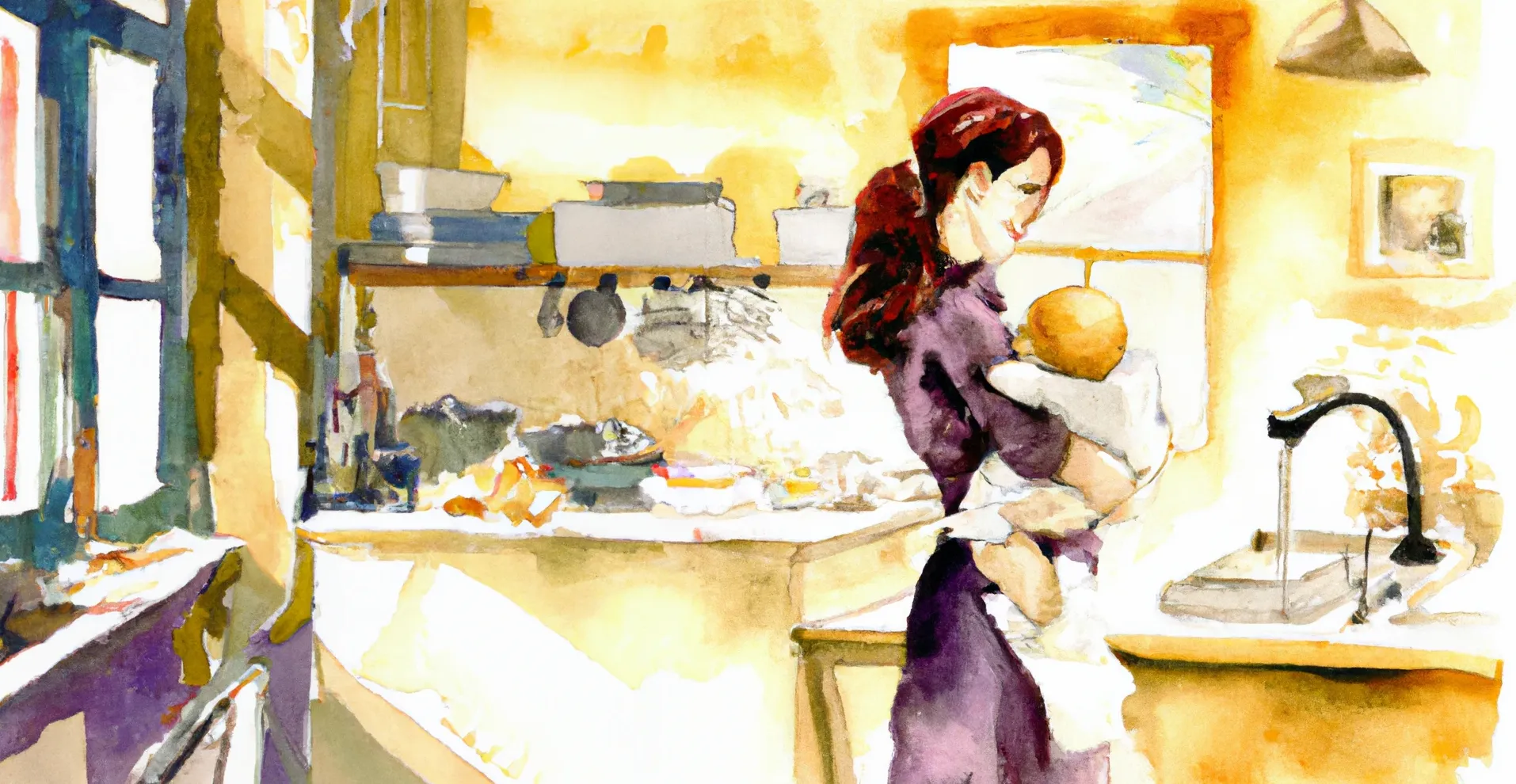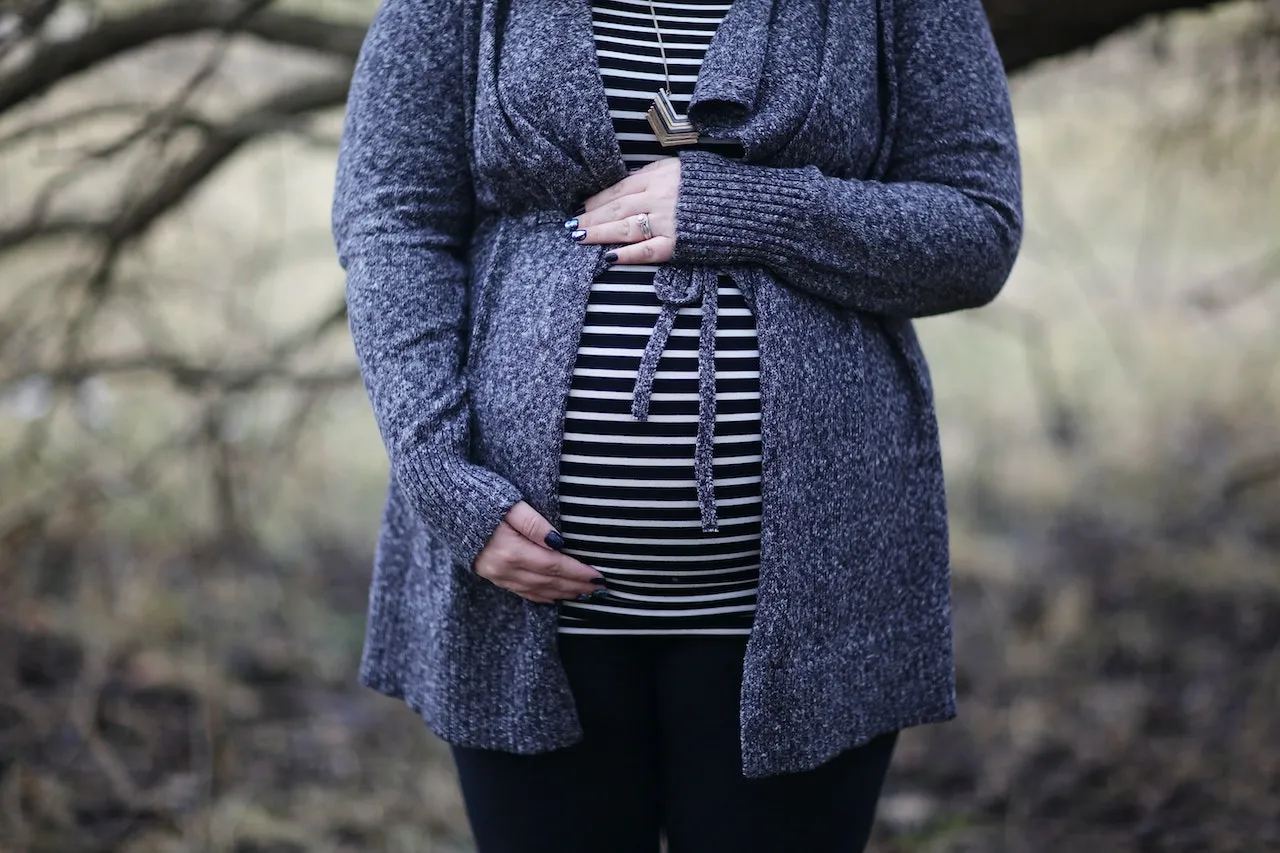Key Takeaways
- Due to hormonal changes and the physical pressure from the growing uterus, pregnant people often experience a slower digestive process, making them more prone to constipation.
- Consuming high-fiber foods such as legumes, oats, fruits, vegetables, and nuts is crucial in reducing constipation during pregnancy.
- Beyond diet, other effective ways to prevent constipation during pregnancy include staying well-hydrated, engaging in regular physical activity as advised by a healthcare provider, and establishing consistent bowel habits.
Many people find themselves constipated while pregnant.
While this is a common occurrence, it’s important to adjust your diet to prevent intense straining while having a bowel movement.
Diet adjustments include eating enough fiber, drinking plenty of water, and getting regular physical activity.
This article discusses why pregnancy causes constipation, common symptoms, and the top 12 high-fiber foods you can eat while pregnant to reduce constipation.
{{splash}}
Why Pregnancy Causes Constipation
Pregnancy causes many changes in your body, which can lead to constipation.
The most common time people experience constipation is during the first and second trimesters —approximately 35% – 39% of people experience constipation during this time.
It’s less common during the third trimester, affecting about 17% – 20% of people.
Here are several reasons why you may experience constipation during pregnancy:
- Hormone changes: Higher progesterone levels cause your digestive system to slow down in your small and large intestines, leading to constipation.
- Supplements: Iron supplements are often necessary during pregnancy, but a common side effect is constipation.
- Physical changes: Your growing uterus can put pressure on your intestines, making it difficult for your stools to pass through your digestive system.
- Changes in physical activity: Many people decrease their physical activity during pregnancy, which can contribute to constipation.
- Food aversions: Some people also experience changes in their appetite or have food aversions, which may contribute to insufficient fiber in their diet, leading to constipation.
- Medications for heartburn: Antacid medications for heartburn, common during pregnancy, can cause constipation.
Common Symptoms of Constipation During Pregnancy
Symptoms of constipation during pregnancy may include:
- Three or fewer stools weekly.
- Painful bowel movements.
- Hard or dry stools.
- Excessive straining during bowel movements.
Top 12 High-Fiber Foods for Pregnant Women
Here are 12 high-fiber foods you can add to your meals or have as snacks to help prevent constipation.
Experts recommend people who are pregnant make it a goal to eat 28 grams of fiber daily.
There are two types of fiber, soluble and insoluble fiber.
Soluble fiber, found in some seeds, grains, vegetables, and legumes, draws more water to the stool and helps with blood sugar and cholesterol control.
Insoluble fiber, found in root vegetables, beans, and whole grains, adds bulk to your stool and helps it pass more smoothly.
Remember to gradually increase your fiber over a few weeks and drink adequate fluids.
Eating too much fiber right away can cause uncomfortable digestive problems such as bloating, gas, and abdominal discomfort.
{{local}}
1. Apples
Apples are an excellent nutritional choice for people who are expecting.
They offer a significant amount of fiber with around 4 grams per fruit.
They also contain other nutrients such as calcium, magnesium, phosphorus, and potassium.
Apples are convenient as an on-the-go snack and can be a delicious addition to salads, providing a sweet and crunchy element.
2. Blueberries
Blueberries are a tasty source of fiber, with each cup providing you with about 2.4 grams.
They're also rich in other essential nutrients such as magnesium, potassium, phosphorus, and vitamin C.
These flavorful berries are great when enjoyed on their own, or mixed into yogurt, granola, smoothies, or salads, making them a healthy and delicious choice for people who are pregnant.
3. Prunes
Prunes, which are dried plums, pack a powerful punch when it comes to adding fiber to your diet.
Each fruit boasts 7.1 grams of fiber.
They are also loaded with nutrients such as potassium and vitamins A and K.
If you aren’t used to eating prunes, start with small servings.
Try adding some to smoothies, pairing them as a snack with goat cheese or ricotta and nuts, or finding main and side dishes you can incorporate them into.
4. Sweet Potatoes
Sweet potatoes are an excellent source of fiber for helping prevent constipation.
A large baked sweet potato contains nearly six grams of fiber as well as calcium, magnesium, potassium, and vitamin A.
You can prepare sweet potatoes in several ways.
Enjoy them baked, mashed, roasted, or as fries.
Also, add them to soups, stews, or salads, giving you a nutritious and flavorful addition to many meals.
{{splash}}
5. Kale
Kale is a highly nutritious food and can help prevent constipation because it is a good source of fiber.
One cup of boiled kale provides 4.75 grams of fiber and is a great source of calcium, folate, and vitamin A.
Enjoy kale in various ways, such as raw in salads, sauteed as a side dish, blended into smoothies, or added to soups and stews.
6. Brussels Sprouts
A cup of cooked brussels sprouts contains about six grams of fiber, as well as potassium, folate, vitamin K, and other important nutrients.
Brussels sprouts can be prepared roasted, steamed, or sautéed.
They're a great addition to salads, stir-fries, or as a standalone side dish.
7. Brown Rice
Brown rice is a good fiber option while pregnant.
Each cup of cooked brown rice contains about three grams of fiber and is a great source of folate as well.
Use brown rice in stir-fries, mixed into salads, in rice bowls.
You can also prepare it as a side dish for curries or stews.
8. Oats
One-half cup of steel-cut oats contains 8 grams of fiber as well as some protein and iron.
You can blend raw oats into smoothies, bake them into granola or oatmeal bars, or make them into overnight oats.
9. Walnuts
One cup of chopped walnuts contains almost eight grams of fiber.
They also provide you with protein, healthy fats, and phosphorus.
Enjoy munching on them throughout the day as a healthy snack or adding chopped walnuts to your salads, breakfast bowls, baking, or homemade granola.
10. Almonds
Almonds are one of the highest sources of fiber.
One cup of raw almonds gives you nearly 18 grams of fiber. They're also a good source of protein, healthy fats, and potassium.
Almonds are great for snacking on, adding over salads or yogurt, blending into almond butter, or using as a crunchy topping for oatmeal and smoothie bowls.
11. Chickpeas
Chickpeas, also known as garbanzo beans, contain a large amount of fiber.
One cup of garbanzo beans provides you with 12.5 grams of fiber as well as some protein and iron.
Chickpeas are very versatile.
Enjoy them in hummus, salads, roasted as a snack, in falafel, stews, or mashed in veggie burgers.
12. Beans
Beans, such as black beans, pinto beans, and kidney beans are an outstanding fiber source for people who are pregnant.
One cup of black beans packs about 15 grams of fiber as well as being a source of protein.
Enjoy beans in soups, stews, bean dips, or added to salad.
You can also use them to make vegetarian tacos or as a flavorful side dish.
{{splash}}
Other Tips for Staying Regular During Pregnancy
Other ways to help your bowel movements stay regular during pregnancy and prevent constipation include:
- Staying hydrated.
- Getting regular exercise.
- Take a fiber supplement. Consult with your doctor or dietitian before.
- Taking over-the-counter medications your doctor recommends for constipation.
- Trying to have a bowel movement at the same time each day.
{{splash}}
Takeaway
During pregnancy, many changes that occur, such as hormones, the growing uterus, a decrease in physical activity, supplements, and more, can easily cause a person to become constipated.
This can often lead to uncomfortable symptoms.
Eating a high-fiber diet is key to helping prevent constipation during pregnancy.
Foods such as vegetables, fruits, whole grains, nuts, and legumes are great sources of fiber and can help keep the digestive tract running smoothly.
How a Dietitian Can Help
Talking with a prenatal dietitian during pregnancy can help manage constipation.
They offer personalized nutritional guidance and can help optimize your fiber intake.
They can also advise you on hydration, which is a key factor for managing constipation.
Find a dietitian near you who can help you meet your nutritional requirements while pregnant.
Do you have any of these insurances?
Why Join Nourish's RD Network






Frequently Asked Questions
If you’re pregnant and trying to get an adequate amount of protein and fiber in your diet, try eating these foods more often: whole grains, nuts, and legumes or beans.
People who are pregnant are prone to constipation due to changes in their body.
Eating foods high in fiber, such as fruits, vegetables, legumes, and nuts, can help keep digestion moving smoothly.
Drinking plenty of water also helps digestion.
During pregnancy, it’s not necessarily foods that cause constipation but changes in the body, such as hormones and the growing uterus.
The best way to prevent constipation is to eat a balanced diet with plenty of fiber.
Some people may also have trouble digesting certain foods if they’re allergic.
Removing these foods from your diet may improve symptoms, but these changes should be completed under the guidance of a registered dietitian.






























